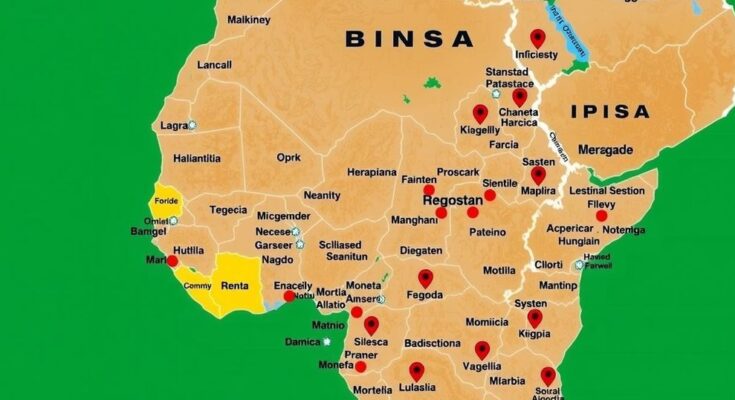As Guinea-Bissau approaches its elections on November 2, media outlets are facing financial strains and threats to their independence due to exorbitant licensing fees and aggressive government tactics. The UNDP has provided some funding to support media coverage, yet many outlets are still at risk, and reports of corruption and violence against journalists further exacerbate the challenges. With an atmosphere of hostility and control, the media’s role in ensuring free elections is increasingly jeopardized.
In the lead-up to the November 2 elections in Guinea-Bissau, media organizations are grappling with significant challenges including logistical constraints and threats to their autonomy. Journalists face increased pressure as they prepare to cover a contentious political landscape, necessitating outreach for financial support from international entities like the United Nations Development Program (UNDP). This dependency on financial aid has a profound impact on journalistic independence, often leading media outlets to develop affiliations with political candidates and parties. The UNDP has engaged in funding various media outlets throughout recent election cycles, assisting them in covering the costs associated with transportation, accommodation, and communication. Despite some financial support provided to local stations and newspapers, the Union of Journalists and Media Technicians in Guinea-Bissau has struggled to secure sufficient aid for their operations, particularly in light of their unsuccessful appeals to international bodies. Adding to the precarious situation, the government has been imposing exorbitant fees for broadcasting licenses, demanding $5,000 from private media organizations, which exacerbates financial burdens and raises concerns about press freedom. In response, the Forum of Private Media Organizations has proposed reduced fees, yet the government’s response remains pending. Given the oppressive financial environment, numerous radio stations are at risk of failing to secure necessary licenses before the upcoming elections. The political atmosphere is fraught with tensions stemming from a history of corruption, drug trafficking influences, and governmental control. Allegations of widespread corruption have permeated government ranks, notably highlighted by the case of Malam Bacai Sanha Jr., who has faced legal repercussions in the United States for his involvement in drug trafficking schemes aimed at financing a coup. Prominent media violations have also been reported, including armed attacks on media facilities, intimidation tactics, and agitation towards journalists. There is an alarming increase in incidents where journalists are assaulted or harassed by security personnel, reflecting a hostile environment for investigative reporting and press freedom.
Guinea-Bissau is poised for a critical electoral period with elections set for November 24. The media landscape in the country is under immense strain due to historical financial limitations and recent political upheaval. Journalists are not only facing logistical challenges in funding their election coverage but are also contending with significant threats to their operational integrity and independence. The current political landscape has been marred by allegations of corruption, drug trafficking ties to government officials, and direct aggression towards media personnel. This underscores the broader implications for democracy and civic engagement in Guinea-Bissau, as free media is often integral to holding governments accountable and informing citizens.
The forthcoming elections in Guinea-Bissau epitomize a complex interplay between political ambition and media integrity. With the government imposing heavy financial burdens on media organizations, coupled with reported incidents of aggression against journalists, the prospects for a free and fair campaign are deeply compromised. The role of international support and the urgency for reform within the media sector is critical in fostering an environment where press freedoms can flourish amidst political contention. This situation clearly illustrates the necessity of safeguarding journalistic independence for the health of democratic processes in Guinea-Bissau.
Original Source: www.voanews.com




